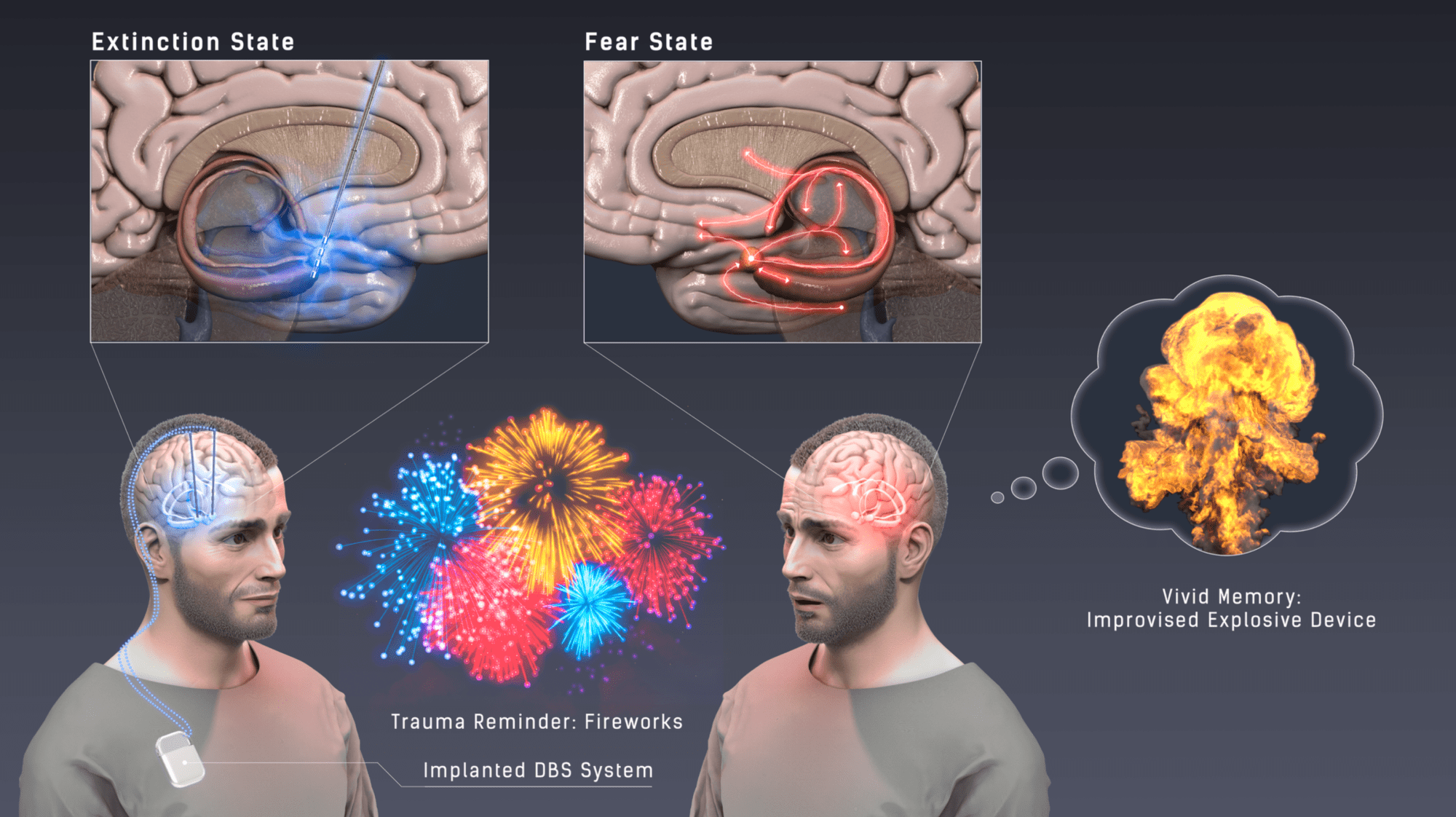PTSD Clinical Trial and Research Study
Principal Investigators
Overview
A large number of American combat veterans are suffering from post-traumatic stress disorder (PTSD). Despite best medical care, the condition is sometimes too severe to respond to medication or therapy. Those patients can develop treatment-resistant PTSD which leads to intense suffering and a higher risk of suicide with no clear treatment options.
The goal of our project is to use a device, similar to a pacemaker but located in the brain, in order to help the symptoms of PTSD. Brain activity in specific regions has been linked to symptoms of PTSD. We will use the device to eliminate this activity and the symptoms.
If you are interested in participating in our research study, please reach out to us!
Learn more and hear a testimonial from a patient in the clinical trial for PTSD.
3-D model of three critical amygdala pathways: the ventral amygdalofugal pathway, the stria terminalis and the amygdala-prefrontal pathway. The amygdala is associated with memory, decision-making and emotional responses (including fear, anxiety, and aggression).
Equipment we use
DBS
Deep brain stimulation (DBS) is an implanted brain electrode system that can significantly improve otherwise debilitating symptoms caused by neurologic and/or psychiatric disorders.
Eye Tracking
Deep learning powered eye tracking glasses, powered by a novel end-to-end gaze estimation pipeline.
Physiological Measurements
PET Brain Imaging
A brain positron emission tomography (PET) scan is an imaging test that allows doctors to see how the brain is functioning. The scan captures images of the metabolic activity of the brain.
Neuropsychological Evaluations
Neuropsychology looks at how the health of the brain affects thinking skills and behavior, attention span and other cognitive functions.
Funded by:




